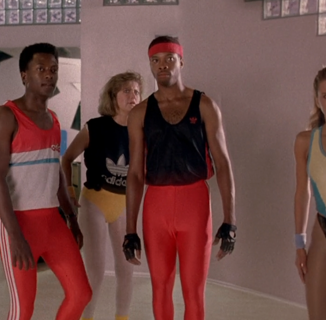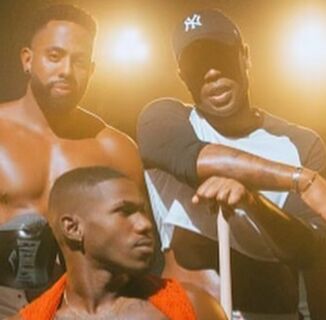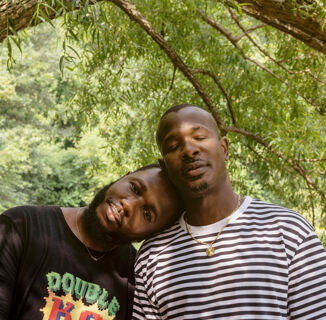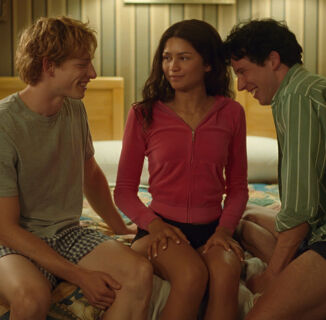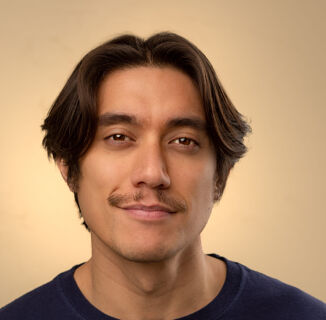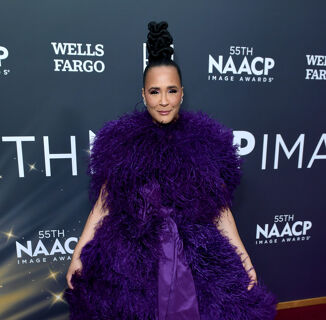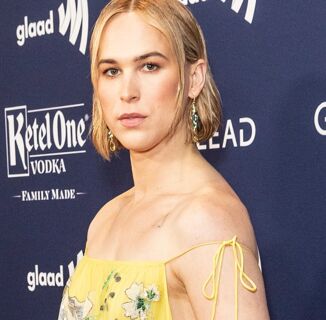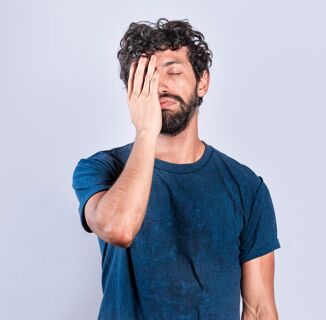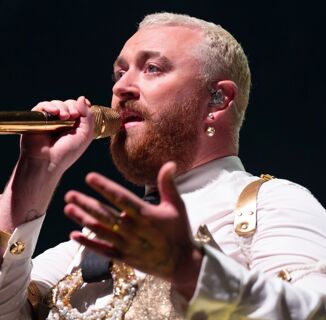Yesterday, I felt bad. Really bad.
It took me a minute to understand why I was so upset. Yes, Netflix CEO Ted Sarandos explained that, despite the transphobic content in Dave Chappelle’s stand-up special “The Closer,” the platform would not be removing the special from their roster. Instead, they fired a trans employee who spoke out against the special.
Was yesterday any worse than any other day, broadly speaking? Not really. Transphobic shit gets said and done every single day, usually by politicians who I couldn’t care less about. I made a decision long ago to simply ignore politics. I don’t care about these people and they don’t care about me, and I just can’t waste my time thinking about them. I’m clinically depressed, goddamnit! There are things I have to do in order to simply be able to get up and face the world each morning, and this is one of them.
I realize how pompous this sounds, but art is my life. I don’t care about politics. I don’t care about news. I don’t care about much of anything at all if it isn’t a unit of entertainment: a podcast, a book, a movie. These are the only things I’ve ever cared about, because they’re the only things that are real and that have power to me. I can’t do much about some disgusting law (I guess I could get my ass up and protest, but that would simply mean damaging my own mental health for the sake of a performative action.) I have this theory that most people who go out and protest actually enjoy it. Not in the sense of “wow it’s great to be discriminated against” but in the sense of, “we have collective power, we’re out here doing this together because it’s the only thing left to do.”
Netflix CEO argues that Chappelle’s new special, criticized as transphobic, is too popular to cancel https://t.co/Mn8NaL8vbi
— The Washington Post (@washingtonpost) October 12, 2021
I can’t stand to be around large groups of people, in public, yelling. I’ve tried it—I hate it. I feel claustrophobic and trapped and like I need to sit down. Whenever I’m outside my home, I can’t wait to get back into my home. Because it’s a place where I know no one is looking at me, thinking about me, or physically near me.
This isn’t just a COVID thing: living in large cities has made me this way. When I lived in New York, nothing about my life felt private. Everything I did was done in a crowded, musty subway, on a shit-stained, overcrowded street, or for the watching eyes of the mice and roaches who had full reign of my apartment. This lack of privacy resulted in a number of very public panic attacks that told me my body was ready to leave this disgusting shithole of a place. In LA, things are much better in that a) you have a car and never have to spend a second of your time on public transportation and b), when you’re walking down the street, you run a fine chance of not encountering any other human life. This is the wished-for outcome. Of course, there’s usually some dude just standing there, looking, or some well-meaning woman who has to address you, in third person, as your dog’s “mom.”
I’m sure not all trans people feel this way, but I do. It’s how I’ve learned to survive. I know that when I’m out in public, at some point, something will be said or done that will make me go dark. I’ll shut down like Windows 98, to the point where I can actually feel myself powering off. The color drains from the world, things go flat. It’s time to head back to my car and cry. Even if I have a relatively nice time with someone or a group of people, I will be waiting to get back home, where I can be alone and safe.
Netflix CEO says Dave Chappelle is too popular to ditch & trans employee gets suspended https://t.co/2vgi0iDnmA
— LGBTQ Nation (@lgbtqnation) October 12, 2021
This is why books and movies are so important to me. They’re my world. You know what a movie character can’t do? Misgender you. Look at you with disgust. Reach through the screen, pull you by the collar and whisper into your ear what they think of you. The gaze is one-sided, and that feels really good when you’re someone who’s used to being looked at. Even before I came out as trans, I had this distinct impression that everyone was looking at me, because I was a monster. The monster filter has stayed on my face: nobody can see it but me, but I know it’s there. Being around people just emphasizes that.
I guess that’s why it hurts so much when Netflix turns its back on me, too. I know it’s “cringey” to say it, but Netflix—along with Hulu, Amazon Prime, Tubi, Vudu, Vimeo, Vevo, and Vuvi (I don’t think that’s a real one but it should be) HBO Max, and all the other streaming services—allow me to parasocially connect with other fucking monsters and weirdos. So I assume these public health services are on my side: until they’re not. Until something happens that reminds me that art, and the places where art lives, can be political, too.
Netflix CEO stands behind Dave Chappelle’s transphobic comedy special, says some people “enjoy it” – https://t.co/gm1HYmbyw1
— Queerty (@Queerty) October 12, 2021
Dave Chappelle’s special wouldn’t have hurt so much if it was a contained thing, a one-and-done experiment. If Netflix had turned around and said, “whoops, we definitely fucked up there!” it maybe wouldn’t drive home so perfectly what it feels like, even on our best days, to be something the world just doesn’t think is human. When I’m betrayed by Netflix, a company that also makes beautiful shows and films about being queer and trans, it feels especially deep and duplicitous. Why make “Sex Education,” a heartfelt show about queer belonging, only to undo that work by giving Chappelle a platform? Why make the brilliant, queer-centered Fear Street series only to turn around and give space to Chappelle? Because Netflix is still operating under the illusion that these are two differing stances on a key issue: the issue of whether trans people are real or not.
We’re not a wedge issue. We’re not an afterthought. We’re real people who struggle to get out of bed each morning. We expect politicians to hate us and treat us like subhuman trash. But media? This is where we live. This is where we find ourselves. It’s the only space, for a lot of us, where being “wrong” or “bad” or whatever growing up has taught us to feel like is actually okay. You can turn on the TV and watch queer villains to your heart’s delight. You can even reclaim those villains if you wish. I co-host an entire podcast centered around reclaiming classic characters from literature and film to create a trans canon that didn’t exist for us when we were growing up. For me, for us, this is life-saving work. Because as important as it is to live in a country that lets trans kids and adults simply live their lives, it’s just as important to create stories that allow trans folks to see themselves in the world, and to project themselves into the future.
Too popular?
Slavery was too popular.
Racism *is* too popular
Every time a smaller group gets beat down, the excuse I hear is that it’s too popular to be stopped…..when all that’s being listened to is the people it doesn’t matter to. This isn’t it.https://t.co/7JIKSHjE8h
— NICKI, A QUEER POLYAM BLACK ⚧ LESBIAN in SEATTLE (@transgirlinSEA) October 12, 2021
As trans people, we can do anything we want. We can change the world, rewrite history, and manifest the reality that we want. What we can’t do is pretend that Chappelle, in his special, is doing anything other than bullying. Bullying us, our friends, our community, and belittling everything we do to stay alive. It feels more personal than the bills and the laws and the Republican mutants who are too laughably stupid to feel like real people. It’s a hate crime, and millions of people are going to see it.
I used to dream of working for Netflix. Now, I escape into those fantasies and Chappelle is there. Me taking a meeting at Netflix? That’s a poisoned dream now.
Years ago I had to reckon with the realization that my other dreams had to die, as well, if I was going to respect myself. The New York Times couldn’t be a place to aspire to work for any longer. I knew too much about how they viewed us. They made too many mistakes. To work there was to be complicit: now, the same is true of Netflix and any other platform that decides to pull shit like this. So what dreams are left for those of us who want to make art? How many corporations will throw away their commitment to queer representation and safety by prioritizing big-name box office draws? I don’t know, but chances I’m going to find out soon enough. Because this shit will continue happening.
Well, the rich, cis/het white guy who’s the CEO of Netflix says it’s not offensive, so we’re just overreacting. pic.twitter.com/jHTrXwFbrZ
— Penny Sterling, Plenary Human Female ⚧ (@sterling_penny) October 11, 2021
These might seem like privileged problems to have, and they are. But these things matter, too. For a lot of trans kids, it’s not enough to simply be protected from discrimination. Trans people deserve more than to just be left alone: we deserve to thrive. To have jobs we love and affect change where it’s important. To have relationships that are thriving and careers that others can look up to. We need to show that we can reach for the moon and get it. I want trans kids to be excited about the prospect of getting a job, rather than terrified that their transness means they’ll never get hired. Otherwise, what’s the fucking point? If you can’t see a future for yourself, you’ll probably keep wanting to die. I know that’s how I’ve felt.
I think a lot these days about what it means to be grandfathered into respectability. Someone like Dave Chappelle, however shitty he becomes, is familiar to people. Once upon a time he made good comedy, so he gained cultural respect. No matter how far away we get from that time period, Chappelle somehow retains some of that cultural respect. So does Ricky Gervais. Back in May, when I wrote a piece about Elliot Page’s ab pics and my eating disorder, I was surprised by the flood of responses I got from cis people being very angry with me for “being miserable” and disrespecting Page’s “trans joy.” Hearing this phrase come from out of the mouths of real-life cis people—who were actively hating on me, a real-life trans person, in defense of a trans person who they will never meet or know in real life—was a stunning revelation. I realized something: a figure like Page is grandfathered into respect, too. He’s been on people’s screens for so long that people feel like they know him. He’ll always be more important to the American public than the trans people who have been around and visible for decades. Why? Because Page was able to earn respect from people back when he was presenting as cis, and that kind of respectability doesn’t just fall away when you come out as trans. The American public will always love a newly-out celebrity more than a trans person who has been out since you met them. I don’t know, I guess it’s easier to see someone as being “like you” and then becoming “unlike you” rather than having them start out as this alien being and never finding a way toward becoming familiar.
I will say that the CEO of Netflix’s belief that stand up comedy exists to “push boundaries” & not to make people laugh is exactly why maybe 3% of the stand up specials on Netflix are worth half a damn. I’ve never seen such a collection of unfunny people paid way too much money.
— Mx. Amadi (@amaditalks) October 12, 2021
Celebrities have this power. They are deeply familiar. People fucking love them. Sometimes, they love them so much that it just doesn’t matter how far they’ve come from being the person they first fell in love with. I fell in love with Ricky Gervais back in the “Extras” days, and because I loved that work so much, it’s been hard for me stop loving him, even as he continues to build his sets around transphobic, sexist jokes. I’m part of the problem. The problem is huge.
That’s why, in a nutshell, it’s so fucking hard all the time. You try to trust people, only to be reminded of how deeply you just don’t know them. Corporations should never be trusted, I know. But forgive me for having warm feelings for the company that funded “Disclosure,” a documentary that genuinely did change the world for the better. Forgive me for experiencing a bit of whiplash as the entertainment world reveals just how conditional its love for trans people is. I’m going to be upset over this for a while. I’m going to let myself feel all the feelings. And I think you should, too. ♦
Help make sure LGBTQ+ stories are being told...
We can't rely on mainstream media to tell our stories. That's why we don't lock our articles behind a paywall. Will you support our mission with a contribution today?
Cancel anytime · Proudly LGBTQ+ owned and operated
Read More in Entertainment
The Latest on INTO
Subscribe to get a twice-weekly dose of queer news, updates, and insights from the INTO team.
in Your Inbox


